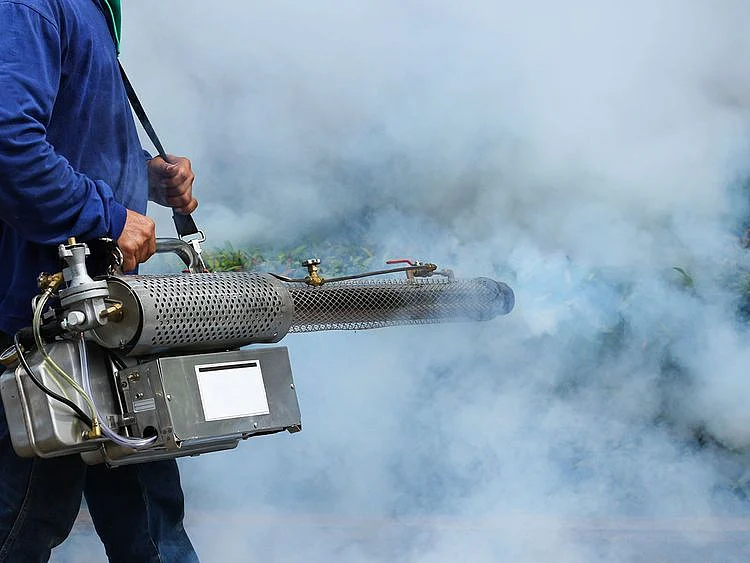Abu Dhabi: The UAE has set up nine specialised teams as part of measures to combat dengue fever, it was revealed on Wednesday.
The Ministry of Health and Prevention (MoHAP), in a written response to a question from the Federal National Council (FNC) on combating dengue fever, said: “The government established nine specialised teams to combat dengue fever, eliminate 409 mosquito breeding sites, provide an insect laboratory, and conduct 1,200 surveys [regarding mosquitoes] in cooperation with the competent authorities in the emirates.”
There are an estimated 134 health facilities to provide appropriate health and treatment services for dengue fever patients, the Ministry added.
WHAT IS DENGUE FEVER?
Dengue is a viral infection that spreads from mosquitoes to people, according to the World Health Organisation. It is more common in tropical and subtropical climates. Most people who get dengue won’t have symptoms. But for those that do, the most common symptoms are high fever, headache, body aches, nausea and rash. Most patients will get better in one to two weeks. Some people develop severe dengue and need care in a hospital. If symptoms occur, they usually begin four to 10 days after infection and last for two to seven days.
“What are the preparations and measures taken by the Ministry in coordination with the relevant authorities to prevent dengue fever, limit its spread and treat it?” FNC Member Waleed Ali Falah Al Mansouri had asked.
In the response, obtained by Gulf News, the Ministry reaffirmed its readiness to use all resources against epidemics by coordinating with health and environmental authorities — federal and local — which are taking swift measures to prevent dengue fever, limit its spread and treat it.
Immediate reporting and treatment
As part of efforts to combat dengue fever and eliminate mosquitoes that cause it, the Ministry enhanced the efficiency of health workers and epidemiological surveillance of dengue cases. In a circular (dated April 22, 2024), the Ministry called for immediate electronic reporting of cases to preventive medicine units and public health units in health agencies to take immediate action.
All parties are required to diagnose and treat cases in accordance with the latest medical advances. Facilities of the Emirates Health Services Corporation have been equipped to follow best practices to treat the cases. Diagnostic services and laboratory tests are provided in the facility, and results will be given within 24 to 48 hours.
Nationwide coordination
MoHAP said it is coordinating with the Ministry of Climate Change and Environment (MOCCE) and municipalities to implement an integrated plan to prevent the spread of dengue fever and control of the disease vectors, according to the recommendations of the World Health Organisation (WHO).
Also Read
How the UAE is safeguarding the community from mosquitoesUAE eradicating mosquito breeding ‘hot spots’ after heavy rainsDubai Municipality: Top tips to combat mosquito proliferation after rainfallThe health ministry said it is joining hands with the environment ministry and strategic partners in a national campaign to eliminate mosquitoes and disease-carrying insects. The coordinates of the locations of mosquito spread across the country have been documented to develop an insect map for monitoring, the ministry said.
Special lab
The Emirates Health Services Corporation has launched a national campaign to fight the spread of mosquitoes by commissioning nine specialised teams. The campaign, supported by a laboratory that specialises in diagnosing mosquito samples, conducts sensitivity and biological tests for pesticides, and studies the effectiveness of pesticides to ensure they are not harmful for humans.
The Ministry’s teams conducted 1,200 entomological surveys for Novellus Aedes mosquitoes, analysed 309 samples for mosquito DNA in the Abu Dhabi Agriculture and Food Safety Authority (ADFSA) laboratory, and eliminated 409 breeding sites for Aedes aegypti mosquito larvae as part of the national campaign.
Awareness and training campaigns
MoHAP teams also held community awareness campaigns on the importance of eliminating mosquitoes to prevent diseases. This campaign, conducted in several languages including Arabic and English, are hosted on the Ministry’s social media platforms, digital channels and the website.
Dengue symptoms
What if I get dengue?
How to prevent mosquito breeding
Network Links
GN StoreDownload our app
© Al Nisr Publishing LLC 2026. All rights reserved.
